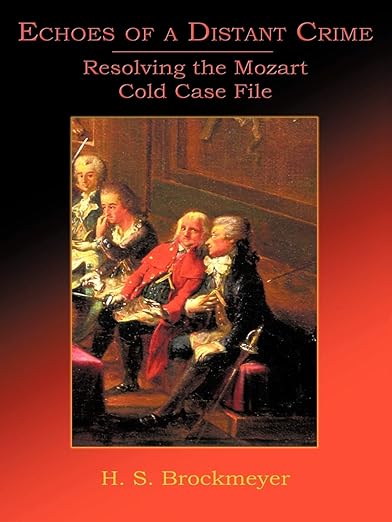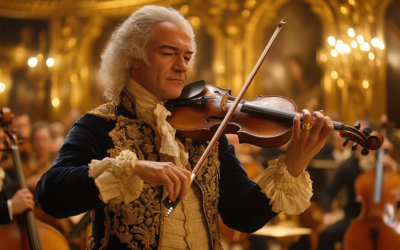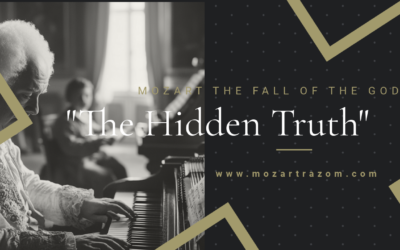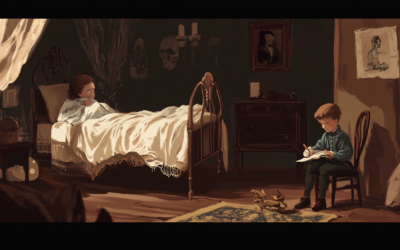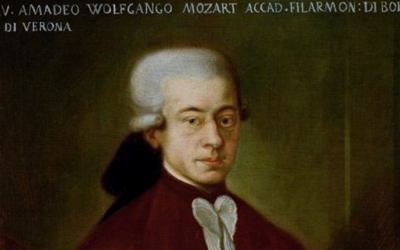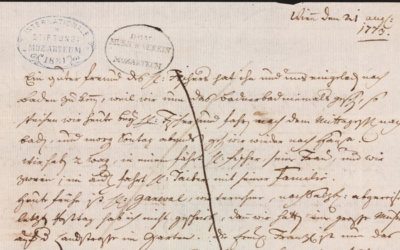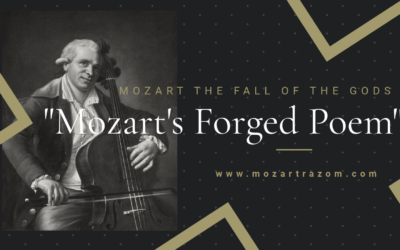MozartrazoM
Georg Nissen and the Missing Notebooks
Article written by H. S. Brockmeyer
After Mozart’s death, his widow, Constanze, found a steadfast partner in Georg Nikolaus von Nissen, a Danish diplomat who dedicated his life to preserving the composer’s legacy. Nissen not only compiled an extensive biography of Mozart but also uncovered and safeguarded many of his compositions. Driven by a deep admiration for Mozart, Nissen even embarked on a secret investigation into the mysterious circumstances of the composer’s death, a pursuit that reflects his unwavering commitment to uncovering the truth.
“Nissen certainly realized the dangers of exposing the murder should it have been
perpetrated by a powerful group with deep connections to the Court.”
Echoes of a Distant Crime: Resolving the Mozart Cold Case File
After the death of the legendary composer Wolfgang Amadeus Mozart, his widow, Constanze, remarried in 1809 to Georg Nikolaus von Nissen, a Danish diplomat and passionate admirer of Mozart’s work. This union not only provided stability for Constanze and her children but also set in motion one of the most remarkable efforts to preserve Mozart’s legacy.
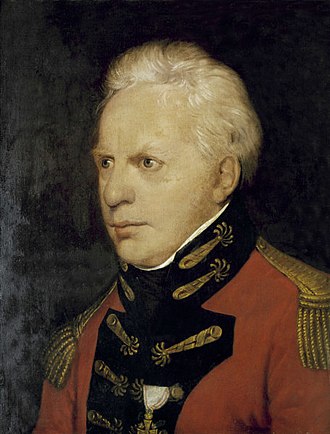
Georg Nicolaus Nissen after painting by Jagemann.
Nissen was a man of diverse talents—a poet, amateur musician, and, above all, a devoted supporter of Mozart. His deep respect for the composer led him to compile an extensive biography of Mozart, a monumental work that spanned over 900 pages and was published posthumously in 1829. Nissen’s dedication to this project consumed much of his life, as he meticulously collected documents, letters, and musical scores, often working late into the night.
Yet, Nissen’s efforts went beyond mere biography. He discovered hundreds of Mozart’s compositions hidden in a closet in Constanze’s apartment, which he carefully cataloged and sold, ensuring that these masterpieces would not be lost to history.
Interestingly, Nissen also harbored suspicions regarding the mysterious circumstances surrounding Mozart’s death. In his final years, he pursued a private investigation, corresponding with close friends and seeking to uncover what he believed was a potential murder plot. His determination to reveal the truth was so profound that, in a secret letter to his stepson Wolfgang, Nissen urged him to continue this investigation after his death, warning of the dangers involved and even involving the King of Denmark as a witness to his testament.
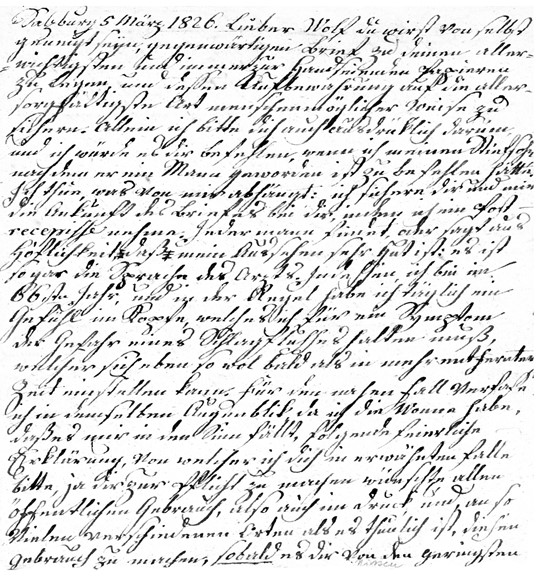
Georg Nikolaus von Nissen’s Letter in 1826 to Step-son Wolfgang Xaver
to Expose Mozart’s Violent End
Image reproduced with permission from the Mozarteum Foundation.
Nissen’s legacy is a testament to his unwavering dedication to Mozart and his relentless pursuit of the truth. Though his final investigation into Mozart’s death remains inconclusive, his contributions to preserving and promoting the composer’s work are invaluable, making him an integral figure in the history of classical music.
To delve deeper into this fascinating story about Georg Nikolaus von Nissen and his connection to Mozart, you can download the full document from the link below.
You May Also Like
The Violin Concertos: Mozart’s Borrowed Genius
Mozart’s violin concertos are often celebrated as masterpieces, but how much of the music is truly his? This article delves into the complexities behind the compositions and challenges the authenticity of some of his most famous works, revealing a story of influence, imitation, and misattribution.
#2 The Hidden Truth of Mozart’s Education
In this video, we uncover the hidden truth behind Wolfgang Amadeus Mozart’s early education and challenge the long-held belief in his effortless genius. While history often celebrates Mozart as a child prodigy, effortlessly composing music from a young age, the reality is far more complex.
The London Notebook
The London Notebook exposes the limitations of young Mozart’s compositional skills and questions the myth of his early genius. His simplistic pieces, fraught with errors, reveal a child still grappling with fundamental musical concepts.
The Mozart Question
In this revealing interview, we delve into the lesser-known aspects of Wolfgang Amadeus Mozart’s life, challenging the long-standing myth of his genius. A Swedish journalist explores how Mozart’s legacy has been shaped and manipulated over time, shedding light on the crucial role played by his father, Leopold, in crafting the career of the famed composer.
Letters Under Surveillance
In a world without privacy, Leopold Mozart’s letters were carefully crafted not just to inform but to manipulate perceptions. His correspondence reveals a calculated effort to elevate his family’s status while avoiding any mention of failure or controversy.
#3 Leopold Mozart’s Literary Theft
Hidden within the Mozarteum’s archives lies a poem that has long been hailed as a tribute to the young Mozart children. But behind this innocent façade is a story of deception, literary theft, and one father’s ambition to rewrite history.

